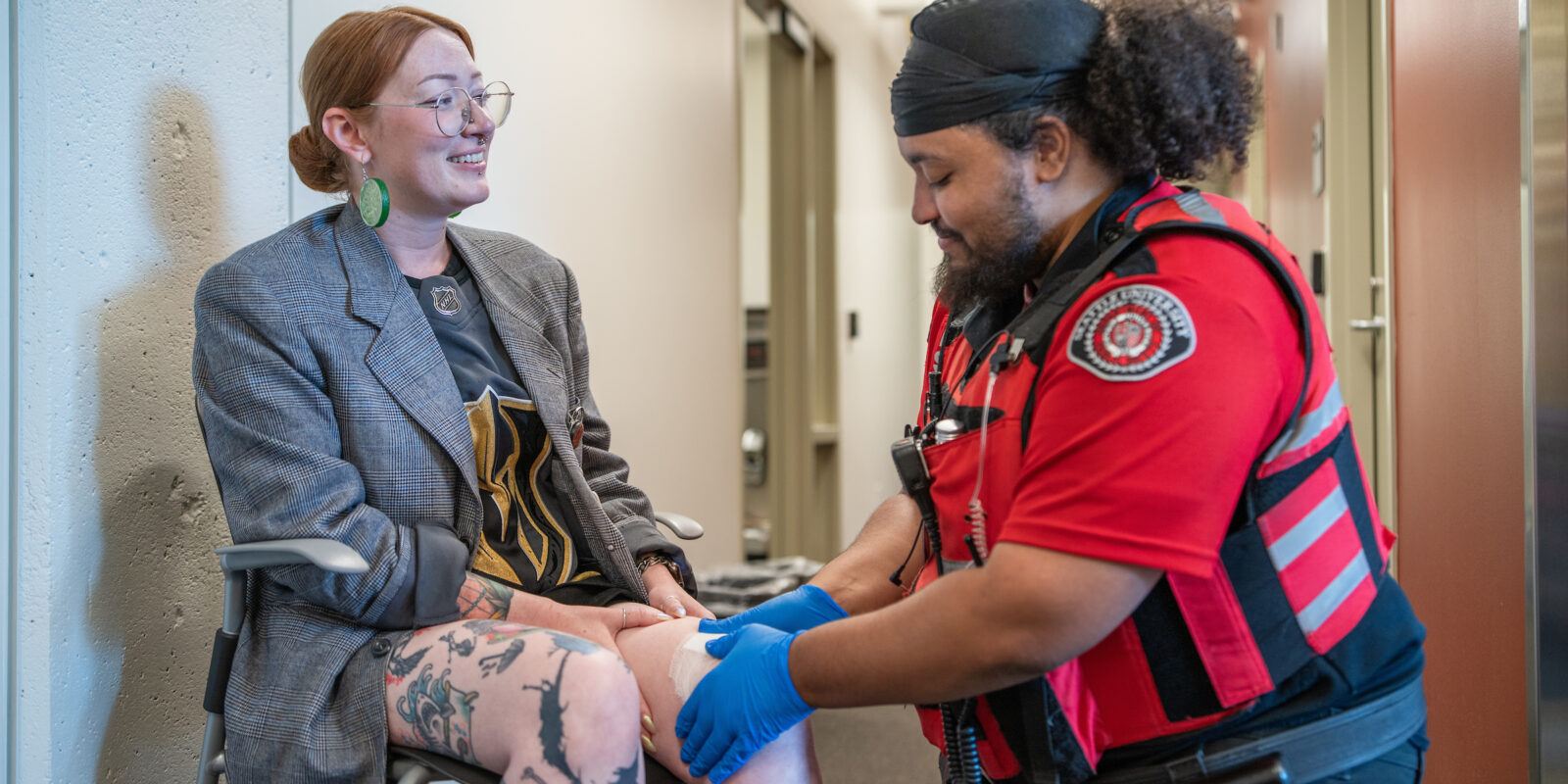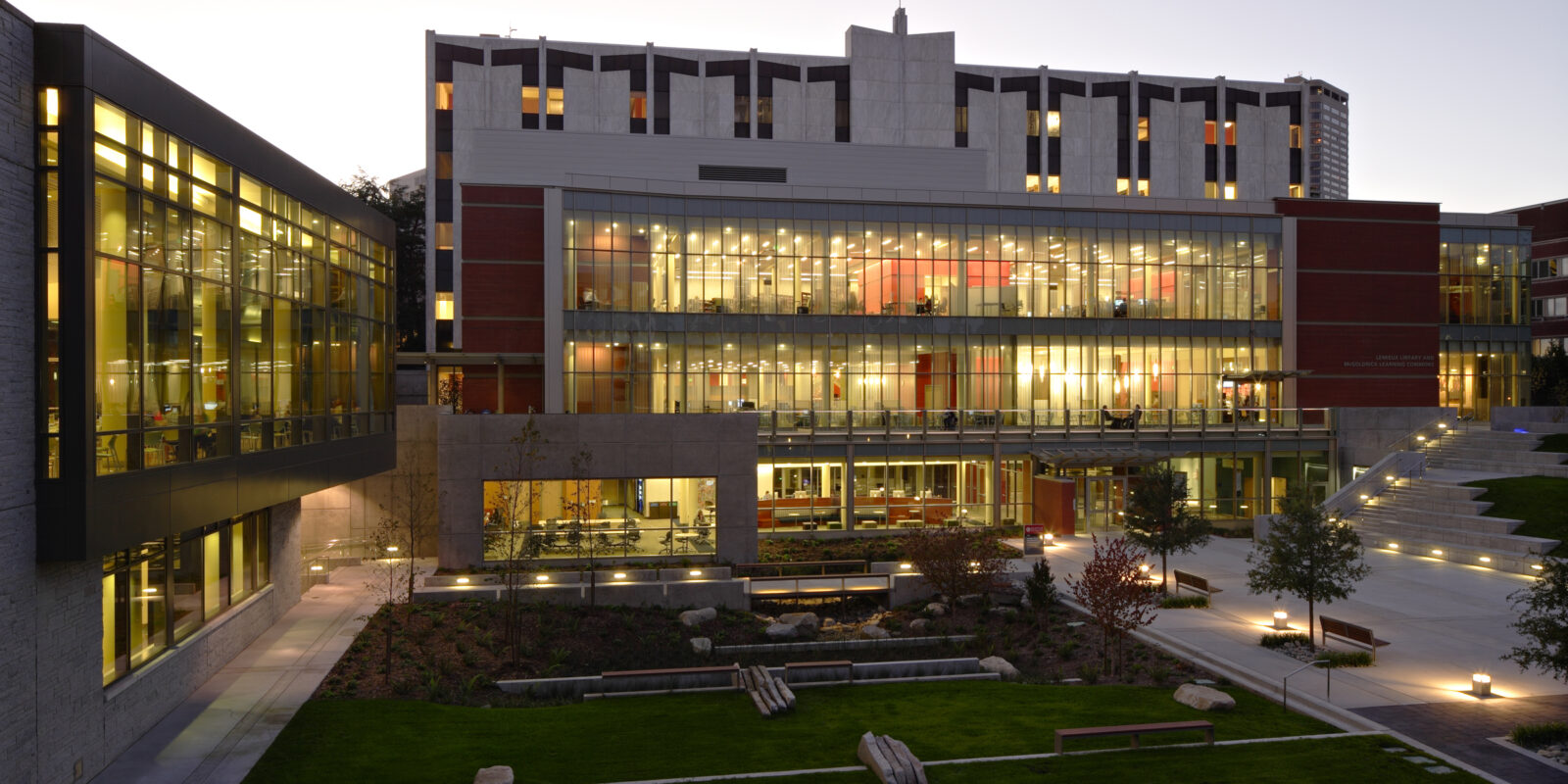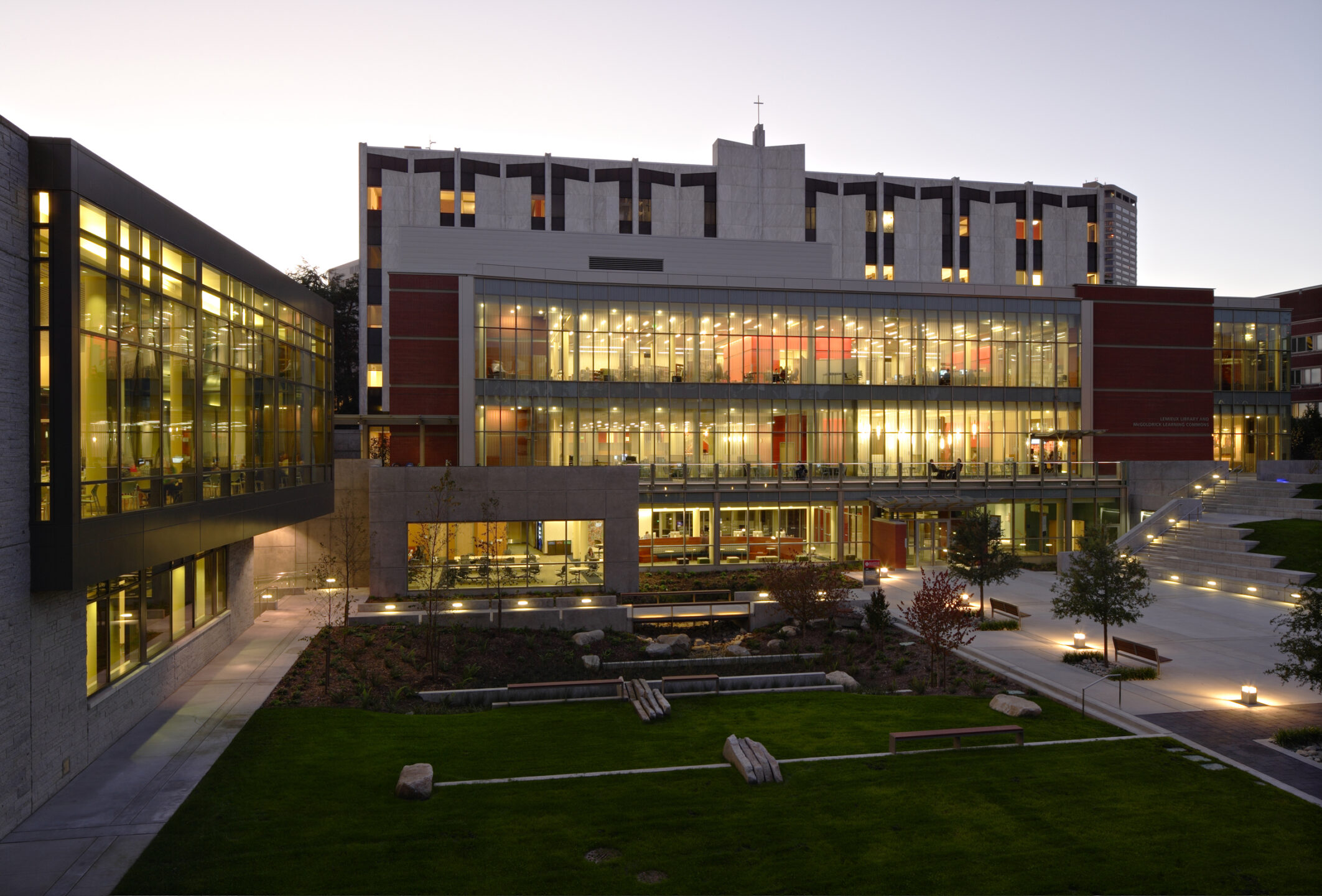Responsibilities of the Position
Reporting to the vice provost for student and campus life, the executive director of public safety & emergency management (referred to as “executive director” herein) provides comprehensive leadership and management for the Seattle University (SU) campus and administers all safety and security efforts. The executive director oversees all daily operations, including the development, administration, and evaluation of all safety and security functions, programs, policies, and protocols as part of a risk-based security program; advises faculty, staff, and students in response to threats or perceived threats; offers appropriate safety and crisis response training for the campus community; and facilitates campus emergency operations. The executive director ensures the protection of critical infrastructure, facilities, property, physical assets, and the educational enterprise; collaborates closely with aligned risk units in mitigating the community’s exposure to safety and security risks; and develops integrated safety strategies in compliance with applicable federal and state laws. The executive director leads, supervises, trains, and evaluates a team of associate/assistant directors, public safety officers, shift supervisors, dispatchers, and student employees; and provides oversight for engagement with private security contracts and local emergency responders.
Responsibilities of the position, as stated in the position description, include:
- Provide vision, leadership, and direction for the department of public safety (DPS). Ensure the department’s practices and objectives align with the University’s mission. Facilitate and oversee the integration of the department’s services into the broader campus community, actively promoting positive relations with the entire local community.
- Plan, organize, direct, and evaluate all public safety department activities ensuring compliance with all applicable federal and state laws and adherence to all University policies and procedures.
- Provide administrative and operational support for a 24-hour/365-day year department of non-sworn, uniformed officer-level staff, dispatchers, shift supervisors, and administrative leadership and support staff.
- Direct and participate as needed with investigations, crime prevention, community relations, special events, and security functions.
- Assist with the analysis of risk exposures related to the health, safety, and security of the University.
- Serve on University committees related to public safety, including the threat assessment team, CARE Team, and emergency management working group.
- Maintain positive working relationships with local, regional, and state law enforcement and emergency response officials (police, fire, rescue, emergency management, etc.), including serving on local and regional councils and task forces.
- Administer the operating budget and make recommendations for the department’s facilities, equipment, systems, personnel, and operating needs.
- Oversee emergency management operations, systems, and technology.
- Assure the completion of necessary reports and the timely dissemination of pertinent information to the necessary constituencies, including the preparation and distribution of the annual campus security report.
- Collaborate with key campus stakeholders to review Clery Act crime statistics for accuracy prior to publishing the annual campus security report.
- Develop and deliver training to University administrators, faculty, staff, and students in safety, security, and emergency management/response.
- Ensure ongoing professional training and development for the DPS staff and campus partners/stakeholders.
Qualifications and Characteristics of the Successful Candidate
A bachelor’s degree in criminal justice, public administration, education, or a related field, and a minimum of ten years of progressively responsible law enforcement/security experience in a senior management capacity, including staff supervision and training, are required. Public safety training and experience in response to crimes in progress, crisis, and emergency management, demonstrating the application of the knowledge, skills, and competencies required to lead the department of public safety are critical to success. Demonstrated knowledge of relevant laws and current issues of public safety and private security functions is required. Experience in higher education is preferred.
The ideal candidate is a thoughtful, decisive, and highly collaborative leader with the ability to facilitate organizational growth and change. Additionally, the ideal candidate will also understand and appreciate campus public safety within the framework of a Jesuit/Catholic institution of higher education. Candidates should be able to demonstrate experience in financial planning, safety, and emergency operations planning, innovative problem-solving, urban safety education programming, and possess a strong and actualized commitment to diversity, equity, social justice, belonging, staff development, and accountability.
The ideal candidate will also have the following: strong leadership, interpersonal, oral and written communication skills; the ability to establish, foster, and maintain positive working relationships with a diverse population of individuals at all levels of the University; an appreciation for cultural, religious, ethnic, and lifestyle diversity; the ability to thrive in a dynamic environment that requires flexibility, tact; diplomacy; critical thinking; goal-oriented thinking, strategic planning, and advanced organizational skills; a strong ability to build teams and develop and empower employees; the ability to always demonstrate and promote integrity and the highest standards of professional conduct; a broad knowledge of federal, state, and local laws and university regulations; the ability to work under pressure and respond quickly to emergency situations; a thorough knowledge of current campus safety and/or police methods reflecting an understanding of the university environment; evidence of energy and commitment; a desire to approach student interactions with a restorative, community-and-solution-oriented framework; and the ability to remain composed, focused, and effective in emergency and conflict situations.
Professional Competencies outlined in the position description include:
- Consistently demonstrate a high degree of personal integrity, emotional maturity, and ethics.
- Proven ability to effectively, continuously, and discretely work with confidential and potentially sensitive information.
- Demonstrated and actualized commitment to diversity, equity, inclusion, and belonging.
- Strong coalition-building skills and capable of developing collaborative relationships with diverse external and internal constituents and stakeholders.
- Strong communication skills both verbally and in writing, effectively presenting ideas and providing plans and procedures in a clear and concise manner to internal and external constituents and stakeholders, team members and senior university leadership.
In addition to the qualifications stated above, key stakeholders identified the following capabilities and attributes of a successful candidate (in no particular order):
- Innovative and creative problem solver
- Commitment to culturally diverse and inclusive people and practices, and a progressive organization
- Change leadership
- Exceptional judgment and decision-making
- Understanding of and ability to navigate complex urban environments
- Composed and effective in emergency and crisis situations
- Community builder
- Experience in addressing complex social justice issues
- Strong supervisory and coaching skills for staff
- Able to develop practical training for faculty, staff and students
- Strong advocacy skills
- Experience responding to individuals experiencing mental health crises
- Collaborative management style
- Capable of building productive, sustainable partnerships with outside agencies
- Change management skills
- Engaged with and integrated into the life of the campus
- Financial acumen/budget management and analytical skills
- Exceptional organizational and logistics skills
- Visionary leader who can develop comprehensive plans
- Familiar with technology, including effective use of social media
- Highly developed verbal and written communication skills
- Excellent interpersonal skills
- Thought leadership on current campus safety methods
- Leadership for emergency readiness and protocols
- Strategic leadership

History of the Position
The position was previously held by Craig Birklid from 2015 until his retirement in 2022. Birklid worked at Seattle University for over 35 years.
Opportunities and Challenges of the Role
The new executive director must possess a broad and deep understanding of national best practices concerning public safety, emergency management, modern technology, and staff development. The executive director should be an experienced leader capable of managing crises and complex situations and equipped to contribute strategically and operationally to an urban college environment.
Opportunities, priorities, and challenges for the new executive director include:
- Experience with urban public safety will be essential to the new executive director.
- A demonstrated commitment to and knowledge of how to serve widely diverse groups and individuals in a higher education environment is essential to this position.
- The public safety department collaborates with local, state, and federal law enforcement, fire safety, and EMS. It remains essential for the executive director to forge a strong working relationship and positive partnerships with these entities.
- The executive director must demonstrate experience as an innovative problem solver and collaborative change agent.
- The executive director should be committed to the unique mission of the university and effective public safety and emergency management practices in the higher education environment.
- Staff recruitment, training, and retention must be prioritized for the department.
- The executive director should provide strategic leadership with the threat assessment team, CARE team, which is the university’s behavioral intervention team (BIT) for supporting students of concern, and the emergency management working group.
- Campus safety and security practices are under a microscope nationally. The executive director should be visible, accessible, and engaged with the student body, consistently networking with the faculty and administration, interactively involving the campus in safety and security endeavors, and generally positively representing the department as an active community member.
- The executive director should use national best practices, innovative new trends, and professional networks to promote a kind and compassionate public safety philosophy.
- Experience with policies, practices, and resources to address mental health issues as they are a growing public safety concern will be essential to success. It will be important that the incoming executive director has experience with initiatives to address this area and to add additional professional development to strengthen the capacity of the staff to address this critical need.
Measures of Success
The items listed below will define the new executive director’s success throughout the first year of employment:
- The executive director has reviewed programs and processes and built upon existing strengths while developing comprehensive public safety and emergency management plans.
- The executive director will have established strong working relationships and partnerships with students, peers, direct reports, institutional colleagues, and key community constituents.
- The executive director understands and supports the unique campus culture.
- The executive director will be seen as an effective leader with ideas about enhancing the organization. Staff members will trust and support the vision for the future.

Overview of the Public Safety Department
The Seattle University Department of Public Safety (DPS), part of the division of Student and Campus Life, is a community-and-solution oriented security organization. DPS plays an integral role in the university community by promoting a safe, secure, and welcoming campus environment, by grounding its work in the Jesuit educational tradition with a particular emphasis on cura personalis. DPS recognizes and promotes the values of diversity, equity, inclusion, and belonging; and most of all, is dedicated to ensuring the dignity, respect, and safety of everyone in our community.
The department of public safety is made up of full-time professional staff and part-time student staff who are charged with, and committed to the safety and well-being of the Seattle University community, the visiting public, and University property and facilities The department consists of officers, dispatchers, supervisors, and administrators, but above all, members of the Seattle University community. Public safety provides campus safety and security for the University community and its facilities 24 hours a day. The staff are trained professionals who are available to assist the community in a variety of safety and security-related areas.
Working with DPS, emergency management develops protocols and training to prepare the campus for emergencies such as:
- Medical Emergencies
- Hazardous Material Spill
- Fire or Explosion
- Earthquake
- Crime in Progress
- Armed Intruder
- Bomb Threats
- Off-Campus Disasters
The DPS is part of the student and campus life division whose Jesuit mission focuses on educating the whole person, which means students learn and grow inside and outside the classroom, as leaders are formed for a just and humane world.
More Information About Seattle Student and Campus Life

Alvin Sturdivant
Divisional Leadership
Alvin Sturdivant, EdD became the vice provost for student & campus life at Seattle University in August 2017, where he previously served as assistant and associate vice president for student development. As vice provost, Sturdivant serves as the senior student affairs officer and provides visionary and administrative leadership for a number of key departments fostering student success, engagement, retention, and an integrated learning experience. He also holds adjunct appointments in the College of Arts and Sciences, teaching courses associated with multiculturalism, the deconstruction of hate in the US and abroad, and race and ethnicity.
Before joining SU, Sturdivant was the housing and residence life director at St Louis University. Prior to joining student development at St. Louis University, he served as the associate director of residential life at the University of Vermont where he was also an adjunct faculty member in the higher education and student affairs administration program and an instructor at the Community College of Vermont. Earlier in his career, he worked in the office of residence life at Syracuse University in several different positions. Sturdivant received his EdD in educational leadership and policy studies from the University of Vermont and his MA and BS at North Carolina State University.

Institutional Overview
Founded in 1891, Seattle University is a Jesuit Catholic university located on a beautiful campus of more than 50 acres in the dynamic heart of Seattle. SU’s diverse and driven population is made up of more than 7,200 students enrolled in both undergraduate and graduate programs within the University’s schools and colleges that offer more than 120 undergraduate, graduate, and certificate programs. St. Ignatius of Loyola founded the Society of Jesus—the Jesuits, as they are commonly called—more than 450 years ago. Today, Seattle University is one of 28 Jesuit universities in the United States and more than 100 around the world.
The Student Body
Total Enrollment: 7,172
Undergraduate: 4,183
Graduate: 2,241
Law School: 748
Men: 39%
Women: 61%
White: 37%
African American: 4%
Asian: 23%
Hispanic: 14%
Two or More Races: 9%
Residential student population of up to 2,400 students with a 2-year live-on residency requirement. The housing inventory includes 7 university-owned communities and partners with two local property management firms to operate 2 additional apartment communities on campus.

Eduardo Peñalver
Institutional Leadership
Eduardo Peñalver is Seattle University’s 22nd president. Prior to joining Seattle University, Peñalver served as the dean of Cornell University’s Law School from 2014 until 2021. Peñalver is a Rhodes Scholar and a professor of law who clerked for former U.S. Supreme Court Justice John Paul Stevens. Peñalver received his bachelor’s from Cornell’s College of Arts and Sciences in 1994 and his law degree from Yale Law School in 1999. As a Rhodes Scholar, he received his master of arts in philosophy and theology at Oriel College, Oxford.
In addition to Cornell Law School, Peñalver has held faculty appointments at Fordham Law School and the University of Chicago, where he was the John P. Wilson Professor of Law. He has also been a visiting professor at Harvard and Yale law schools. Peñalver’s work on property law has been published in scholarly law journals at Yale University, the University of Michigan, Cornell, and the University of Pennsylvania. He is considered a leading voice in the “progressive property” movement, deriving many of his insights from Catholic social teaching.
Application and Nomination
Review of applications will begin immediately and continue until the position is filled. To apply for this position please click on the Apply button, complete the brief application process, and upload your resume and position-specific cover letter. Applicants needing reasonable accommodation to participate in the application process should contact Spelman Johnson at 413-529-2895 or email info@spelmanjohnson.com.
The base compensation package for this position is between $120,000 and $125,000, along with a comprehensive benefits package that includes health insurance, paid leave, retirement, tuition assistance, and more. This position is an on-site role, and the anticipated start date is June/July 2024.
Visit the Seattle University website at https://www.seattleu.edu.
Seattle University does not discriminate on the basis of race, color, religion, sex, national origin, age, disability, marital status, sexual orientation, gender identity, political ideology, or status as a Vietnam-era or special disabled veteran in the administration of any of its education policies, admission policies, scholarship and loan programs, athletics, and other school-administered policies and programs, or in its employment-related policies and practices. In addition, the University does not discriminate on the basis of genetic information or status as a victim of domestic violence, sexual assault, or stalking in its employment-related policies and practices, including coverage under its health benefits program.
The University expects the impact of a diverse community on academic and co-curricular programming to be beneficial to our students, the institution, and the environment in which they both function. Seattle University inspires students to learn, lead and serve in a diverse and changing world. Opinions rendered by a diverse community further the University’s educational goals by challenging traditional educational practices and arrangements, and by contributing new perspectives to the curriculum and other scholarly pursuits. The University believes that classes of students from diverse backgrounds, taught by faculty of varied backgrounds, results in a richer and better educational experience. Ultimately, our graduates will have a significant impact on business, education, the arts, law, and sciences for generations to come. We must create a learning environment enriched by diversity on campus so our students will be prepared for professional careers and positions of leadership, and for successful and productive participation in a heterogeneous democracy and global economy.


